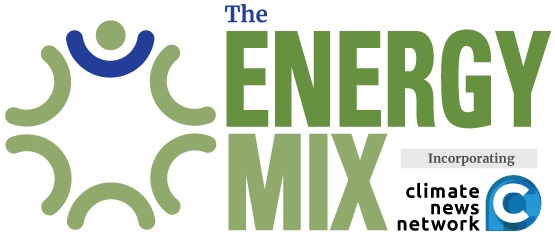The company only opened its doors in 2023. But after eight years of study and development at TU Delft, the news story states, the co-founders plan to scale up fast, with a capacity target of 50 gigawatt-hours per year by 2030.
“We are really busy talking with a lot of commercial parties about deploying our systems,” business development manager Bas Kil told Latitude Media. “We’re not planning to do years and years of pilot-scale; we believe that our system is now ready for commercial deployment.”
Kil added that the European grid “has a big need for this technology”—particularly in the Netherlands, where wind is intermittent but more abundant than solar.
“The generation profile of solar matches really well with the duration of lithium-ion batteries,” he explained. “But with wind, it’s very common to have multiple days of very high or low generation. So you could easily have three days where all your wind farms are producing at close to maximum capacity… and in your first two to four hours, all your lithium-ion batteries will be full.”
Iron-oxide burst onto the energy transition scene in December 2022 when Somerville, MA-based start-up Form Energy—whose ‘Fe’ acronym conveniently mimics the atomic symbol for iron—chose the former steel town of Weirton, in West Virginia’s northern panhandle, as the site of its first manufacturing plant. Weirton, population 18,813, went through decades of ups and downs with a steel mill that ultimately folded at the beginning of this century. When he announced the deal, then-governor Jim Justice (R) recalled the town’s “tough, tough times”, adding that the battery plant would continue the state’s legacy as an energy producer.
“We want West Virginia to be known forevermore as that energy state that always figured it out,” he said.
By October 2024, the plant was in production and announcing US$405 million in new funding to speed manufacturing. “With this new funding,” CEO Mateo Jaramillo told The Associated Press in an email, “we’re ready to accelerate multi-day battery deployments to meet the rising demand for a cleaner and more reliable grid.”
Fast forward to late July, and the Washington Post says Form Energy has hired 440 people, including hundreds of past Weirton Steel employees, to work in the 46,450-square-metre (500,000-square-foot) plant.
“But its leaders don’t want Form Energy to be typecast as green, as the Trump administration takes aim at clean energy initiatives,” the Post writes. “Some in Weirton also remain skeptical that a battery company fits into the culture of an increasingly conservative city built around a steel plant.”
“I think we are part of clean energy in America, and that is broadly how we think about it,” Jaramillo told the Post. “But I think if you call us green, that is too narrow a term to describe the value of this product.”
Whatever ideology Trump is pitching, local leaders are satisfied enough with the new jobs the plant has brought to the town. Previously, Justice said in 2022, “we were really, really excited when we had an announcement of eight jobs at a water bottling plant.”
“As far as it being green energy, I don’t care what they are. They are jobs,” Weirton Mayor Dean M. Harris, who worked at Weirton Steel for 48 years, told the Post. “When you look at the future of heavy industry in the country, I don’t think you are going to see a rebound.… We have sold that part of our history to the Chinese, Japan, and other countries.”
Cover photo: Weirton, WV by Jon Dawson/flickr


